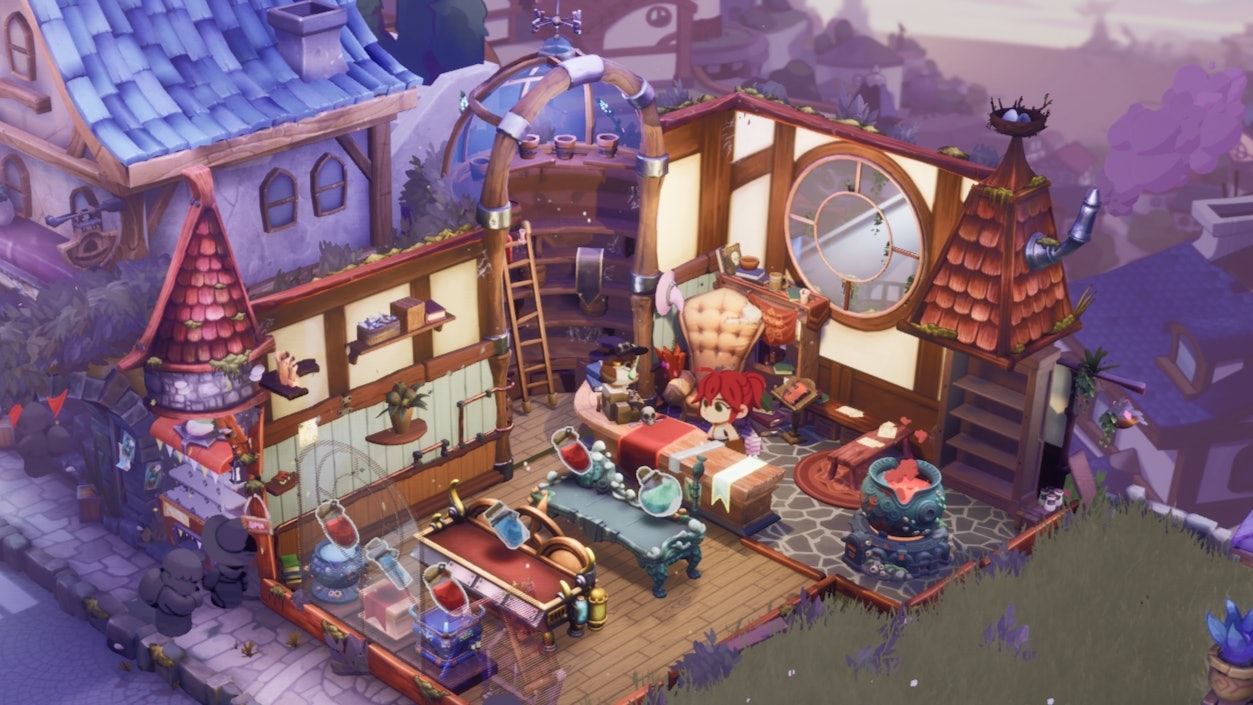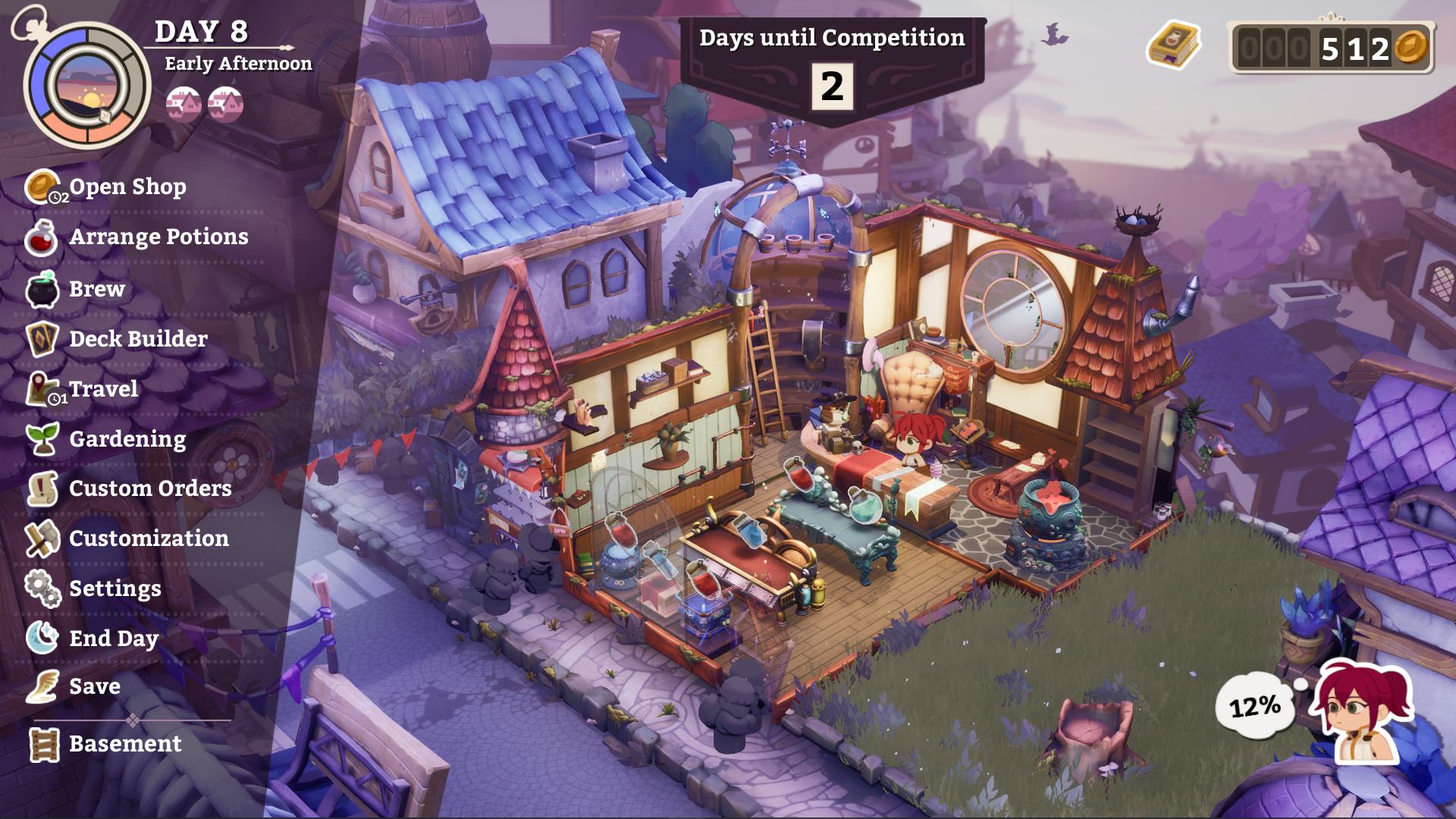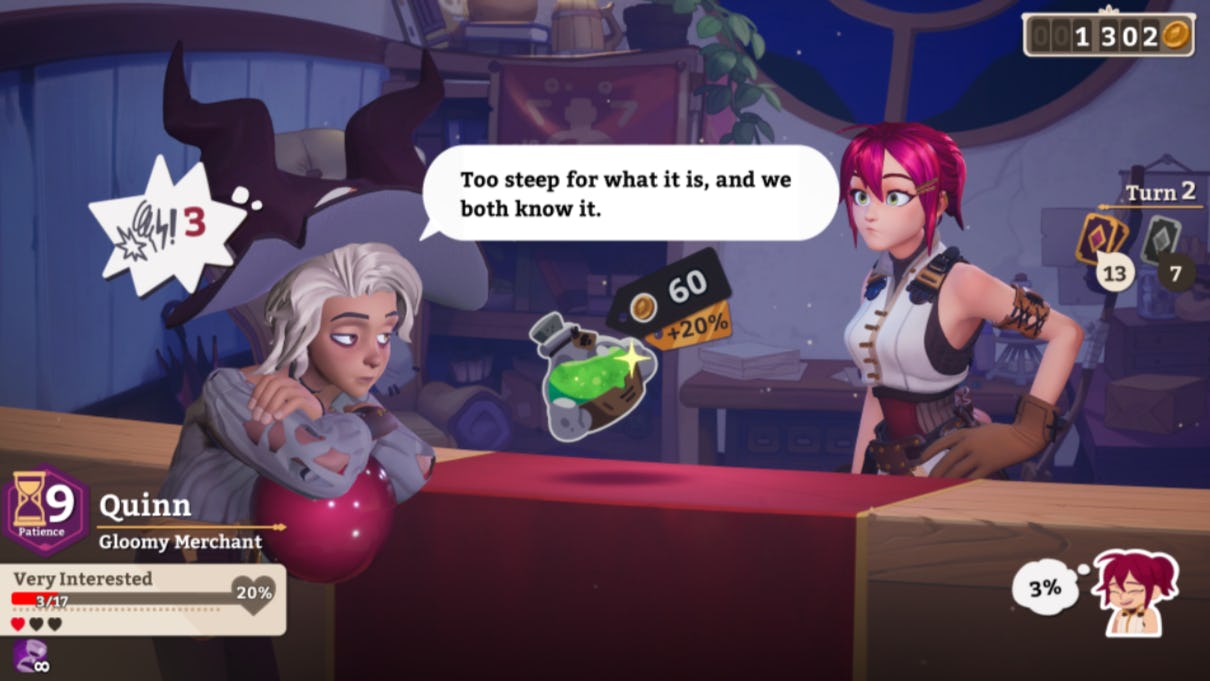
Voracious Games mixes resource management with a relationship sim in its first game, Potionomics. These types of games typically center on a cafe or farm, but this time, it’s a potion shop.
A witch named Sylvia has moved to Rafta to take over her deceased uncle’s debt-ridden potion business. Little did she know, it’s actually a rundown place without many materials or much prestige. Thankfully, she makes friends with the townspeople fast, and soon cultivates a decent number of customers. Turns out Rafta’s full of magical entrepreneurs and adventurers!
Xseed Games, a publisher with a reputation for publishing cozy games like Rune Factory 5, is backing the game. If you want a cozy game with a focus on characters and economics (hence the name), this one’s worth keeping an eye on.
Potionomics isn’t overflowing with mechanics — it has a few that it explains well without feeling overwhelming. Your main goal is to efficiently manage your time and make as much money as possible with high-quality potions and people skills (a.k.a. haggling). There are only six time slots during the day and some potions take longer to brew than others. In short, you’ll need to mind how long potions take to make and sell the ones that are ready before closing time.
The more high-quality, diverse materials you have, the more options you have to make money and produce higher-quality products. You need to acquire the tools for more valuable potions (multiple cauldrons, for example) and then sell them at the highest price possible. Well, if you don’t let customers bully you.
Bargaining is a whole other aspect of the game. Mixing potions and selling them fills the same niche that a cafe, restaurant, or farming sim might because of the similarity to making items and selling them. However, bargaining raises the stakes for how much money you make and adds a layer of a strategy game to an otherwise straightforward game. Potionomics is labeled as a “deckbuilder” for a reason.

At the start, players can only choose from a hand of three cards while haggling with a customer. These cards can have a variety of abilities from raising the customer’s interest in your item to bracing yourself for any complaints that a customer might raise in response to your bargain. As Sylvia meets new characters and gains more experience, she will eventually unlock other strategies that might give her the upper hand in a bargain.
Then, there’s friendship and, potentially, romance. Sylvia converses with many characters from shopkeepers to heroes. Befriending them raises the perks they give you, like receiving a discount on potion ingredients or other cards for your haggling deck. These friendships work similarly to support levels in Fire Emblem – the closer you are, the more perks (or more valuable perks) you receive from the character in question. It might not be a power-up, but it will help your business somehow.

Also, you can apparently date one of ten viable bachelors and bachelorettes. Whoever the player chooses as their romantic partner won’t make a difference when it comes to perks. Skin colors, sexualities, and other qualities are also reasonably represented in the game.
Not to mention the characters themselves don’t fail to impress. Each one felt unique both in personality and appearance, enough that it’s likely one of them will please any given player. Sylvia herself is an energetic go-getter that makes it easy to upgrade the shop and befriend the townspeople. There’s Quinn the witch, a sleepy-eyed girl who has that bored goth gf vibe, a brave, friendly hero named Mint who can add some muscle to your strategy, and the list goes on.
Potionomics is Voracious Games’ first game as a studio. However, its developers’ experience has paid off with a clean, charming demo. If you’re curious about Xseed Games’ other PAX indies, also check out Melon Journey: Bittersweet Melodies and Deadcraft.
Potionomics will launch on PC in fall 2022. You can wishlist it on Steam now.







